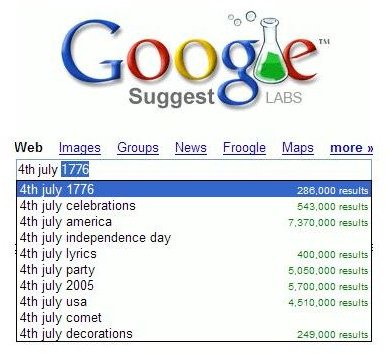Is Googlling Bad for the Environment? A Look at the Energy Used In Google Search
Energy and Carbon Costs of a Google Search
In the article about the carbon footprint of a Google Search, LocalCitizen discussed a study by Harvard researcher Alex Wissner-Gross which was first reported in a British newspaper, The Times. According to the Times, “While millions of people tap into Google without considering the environment, a typical search generates about 7g of CO2 Boiling a kettle generates about 15g. ‘Google operates huge data centres around the world that consume a great deal of power,’ said Alex Wissner-Gross, a Harvard University physicist whose research on the environmental impact of computing is due out soon.”
Wissner-Gross has since refuted the story. He claims that while he did engage in discussions with the Times, his research contains no Google-specific data or estimate as to how much C02 may be produced as a result of a Google search.
Whether or not the Times story is accurate, it nonetheless raises an interesting point. When you perform an online activity it’s not only your own computer that is using energy, it’s somebody else’s computer too. Sending an email, visiting a website, downloading a program or MP3, playing an online game, searching, sending an email and Twittering all use resources on some remote server. And those servers use enormous amounts of energy. According to Jon Koomey, a Consulting Professor at Stanford and a Project Scientist at Lawrence Berkeley National Laboratory, in 2005 servers and the data centers which house them used almost as much electricity as Mexico - a country with a population of 100 million. And the figure is steadily rising. As more and more people come online and perform more and more of their activities online, so companies need to build more and more data centers and deploy more and more servers in order to cope with the additional traffic.
But is this a good thing or a bad thing? The answer is that it’s a mixed bag. On the negative side, the IT sector is now responsible for producing more greenhouse gasses than the aviation industry. On the positive side, the net result may be an overall reduction is greenhouse gas emissions as somebody shopping on eBay almost certainly uses less energy than they would if they were to drive to the store.
What Can I Do to Reduce Energy and Carbon Consumption?
Firstly, you could start using a green search engine such as EcoSearch.org. This will not reduce the amount of energy used, but it will result in some money being given to charities which support environmental causes. Besides that, there really isn’t very much that you can do expect spend less time online (and you probably don’t want to do that, do you?). The good news, however, is that there are various initiatives underway that should help address the problem. The European Union recently a Code of Conduct for Data Centers which sets energy-efficiency standards (and the EPA is considering introducing a similar code in the US). Pacific Gas and Electric have a scheme which offers cash incentives to companies which use energy-efficient technology to reduce their electricity consumption. The Green Grid is working on creating metrics which will enable data centers to monitor and reduce their energy consumption. Such schemes and initiatives should enable IT to reduce its environmental footprint considerably.
Additionally, you can also make sure that your own computer isn’t wasting energy - and you’ll find a wealth of information about how to do that in the Tips section of the Green Computing channel.
